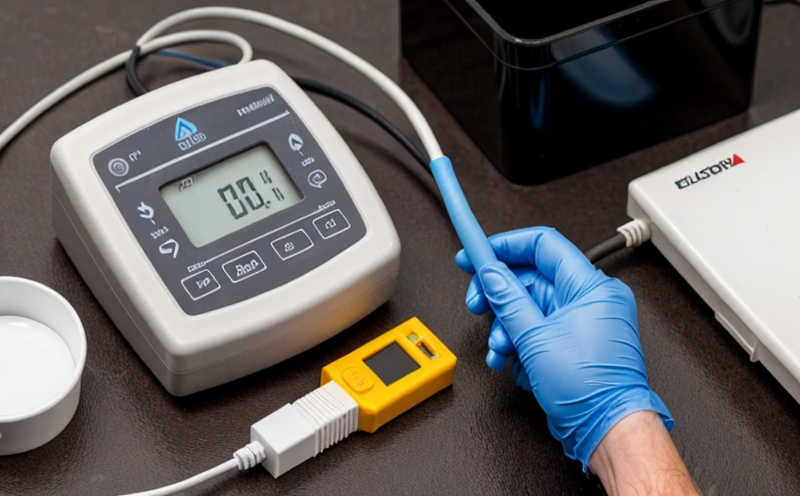NF EN 12496 Electrochemical Testing of Sacrificial Anodes
The NF EN 12496 standard is widely recognized as a crucial benchmark for the electrochemical testing of sacrificial anodes. This method ensures that sacrificial anodes used in corrosion protection systems meet stringent performance requirements, thereby enhancing the reliability and longevity of these protective measures.
Sacrificial anodes play a vital role in cathodic protection (CP) systems by providing a source of galvanic current that sacrifices itself to protect more critical parts of the system. This process is essential for preventing corrosion damage in metals exposed to aggressive environments, such as seawater or soil.
The NF EN 12496 standard specifies detailed procedures and parameters for conducting electrochemical tests on sacrificial anodes. Compliance with this standard ensures that anodes are tested under controlled conditions that mimic real-world usage scenarios. This approach provides a consistent basis for evaluating the performance of sacrificial anodes, ensuring that they meet the necessary specifications before deployment.
The test procedures outlined in NF EN 12496 include several key steps: preparation of the test specimen, immersion in the specified electrolyte solution, measurement and recording of potential and current values over time. These parameters are critical for determining the anode's performance characteristics, including its rate of corrosion and overall durability.
By adhering to NF EN 12496, laboratories and testing facilities can ensure that sacrificial anodes meet or exceed the specified requirements. This not only enhances the effectiveness of cathodic protection systems but also contributes to a reduction in maintenance costs and potential damage caused by corrosion.
The standard covers various types of sacrificial anodes, including zinc, aluminum, and magnesium alloys, each with its unique electrochemical properties. The testing process ensures that these anodes are suitable for the intended application, whether it be marine structures, pipelines, or buried infrastructure.
Applied Standards
| Standard Number | Description |
|---|---|
| NF EN 12496 | Electrochemical testing of sacrificial anodes used in cathodic protection systems. |
Why Choose This Test
- Ensures compliance with international standards and regulations.
- Provides reliable data on anode performance under specific conditions.
- Enhances the effectiveness of cathodic protection systems.
- Reduces maintenance costs by identifying unsuitable or ineffective anodes early in their lifecycle.
Quality and Reliability Assurance
The NF EN 12496 electrochemical testing process is designed to ensure the highest quality and reliability of sacrificial anodes used in cathodic protection systems. By following this standard, laboratories can provide clients with accurate and consistent test results that reflect real-world conditions.
Quality assurance in this context involves several key aspects: precise measurement techniques, standardized testing protocols, and rigorous data analysis. The use of advanced instrumentation and software ensures that all parameters are recorded accurately, allowing for detailed evaluation of the anodes' performance.
Reliability is further enhanced through repeatable tests under consistent conditions. This consistency allows for meaningful comparisons between different batches or types of sacrificial anodes, helping to identify any variations in quality or effectiveness.
The NF EN 12496 standard also emphasizes the importance of proper specimen preparation and handling. This ensures that the test results are not influenced by external factors such as contamination or improper storage conditions. By following these guidelines, laboratories can maintain the integrity of their testing processes and provide clients with trustworthy data.
In conclusion, NF EN 12496 electrochemical testing is a vital tool for ensuring the quality and reliability of sacrificial anodes used in cathodic protection systems. Its stringent requirements and standardized procedures provide a robust framework for evaluating anode performance, ultimately contributing to more effective and durable protective measures.





